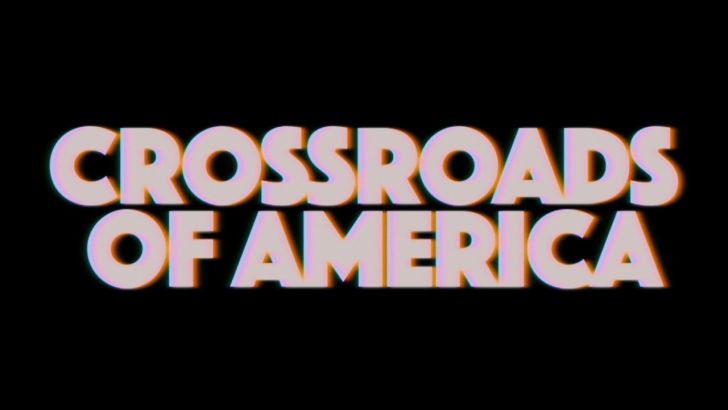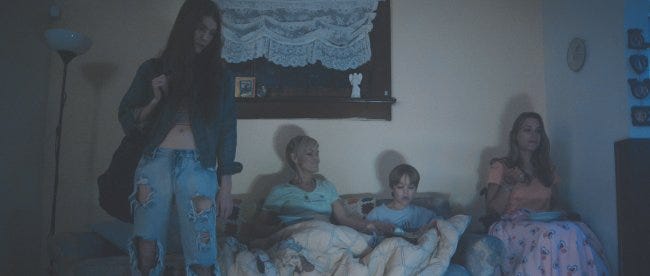Crossroads of America
A contemplative, moody look at a dysfunctional household of three women tied together by conviction and tragedy.
It's been said the people you despise the most are sometimes the same ones you are closest to. That's the stark truth behind "Crossroads of America," a moody, contemplative drama about a dysfunctional family that is set and shot in Indianapolis.
Laura Sampson Hemingway wrote the screenplay and stars as Sandy, the "trouble child" of the clan, though each of them has serious issues haunting them. Sandy's are just the most transparent as an alcoholic who's barely hanging on at nursing school and secretly making pornographic videos of herself.
It's a tough, fully invested performance that's hard to watch but never less than compelling. She and director Gabrielle Muller work together to craft a portrait of a family in crisis, a story without easy answers or concrete resolutions.
Indeed, there's an almost dreamy quality to the film, which is just 80 minutes long and currently playing on Amazon Prime Video. There are plenty of wordless stretches of the three women at the center of the story just by themselves and their own thoughts, smoking, wandering and wondering. I also was struck by several tableaus of them stretched out in a pose reminiscent of Biblical paintings.
Kaye Tuckerman plays the mother, Glenda, who's a minor celebrity as a psychic. A film crew drops in for part of the movie to shoot a video about her, which leads to some uncomfortable encounters.
We get the sense that what Glenda most needs is attention, and in this way she and Sandy are much alike -- possibly explaining their constant enmity. Glenda also has a much younger son, Carlos (Mitchell Wray), a child of maybe age 8 who's usually off in the corner with his headphones on as the women thunder at each other.
Natalia Ortonowska plays the middle daughter, Ellie, who was rendered a paraplegic in a car accident while Sandy was driving drunk. She's forced to sleep in a little area in the living room roped off with bedsheets because her wheelchair can't get through the narrow doorways of their little bungalow.
Ellie had her own apartment and job, and can't stand the way her independence has been snatched away from her. She yearns to resume something like her previous life, engaging in some online matchmaking and flirting with her physical therapist, David (Blaise Nally), who's kind and gorgeous.
The big unacknowledged gorilla in the room is Sandy's guilt over her sister's injury. It seems to haunt every scene they have together, though their conversation mostly sticks to staid topics like men, concern for Carlos and resentment for Glenda.
There's a few brief flashbacks to the sisters' grandfather, with the implication being there may have been some abuse or inappropriate behavior. It's just hinted at, like a dusting of bitter spice.
The film also does a lot of looking at the women's bodies. Glenda is striving against the invisibility often foisted on older women, and Ellie is up front about wanting to reclaim her place as a sexual being despite her newfound disability. Sandy, though, clearly has an unhealthy obsession with being gazed upon, playing with disguises and wigs for her videos, or just for her own amusement.
I liked a lot of things about "Crossroads of America." It eschews traditional narrative conventions and just sort of lingers with these women for a while, absorbing their energy and tuning in to their unique rhythms. I do wish it could have found something more like a resolution, or at least showing us the bridge that will take them to the next chapter of their lives.
Watching the movie almost feels like an unplanned day trip where you're not sure how you got where you are; the experience is a little discomfiting interesting enough to hang around for a bit.





